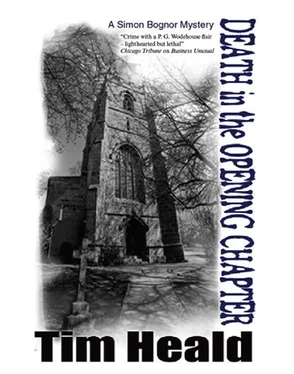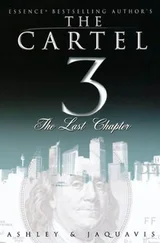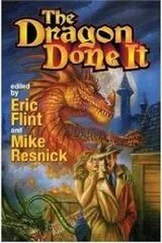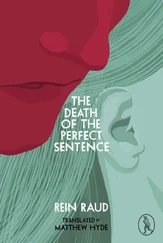Tim Heald - Death in the opening chapter
Здесь есть возможность читать онлайн «Tim Heald - Death in the opening chapter» весь текст электронной книги совершенно бесплатно (целиком полную версию без сокращений). В некоторых случаях можно слушать аудио, скачать через торрент в формате fb2 и присутствует краткое содержание. Жанр: Криминальный детектив, на английском языке. Описание произведения, (предисловие) а так же отзывы посетителей доступны на портале библиотеки ЛибКат.
- Название:Death in the opening chapter
- Автор:
- Жанр:
- Год:неизвестен
- ISBN:нет данных
- Рейтинг книги:5 / 5. Голосов: 1
-
Избранное:Добавить в избранное
- Отзывы:
-
Ваша оценка:
- 100
- 1
- 2
- 3
- 4
- 5
Death in the opening chapter: краткое содержание, описание и аннотация
Предлагаем к чтению аннотацию, описание, краткое содержание или предисловие (зависит от того, что написал сам автор книги «Death in the opening chapter»). Если вы не нашли необходимую информацию о книге — напишите в комментариях, мы постараемся отыскать её.
Death in the opening chapter — читать онлайн бесплатно полную книгу (весь текст) целиком
Ниже представлен текст книги, разбитый по страницам. Система сохранения места последней прочитанной страницы, позволяет с удобством читать онлайн бесплатно книгу «Death in the opening chapter», без необходимости каждый раз заново искать на чём Вы остановились. Поставьте закладку, и сможете в любой момент перейти на страницу, на которой закончили чтение.
Интервал:
Закладка:
‘But,’ said Monica, ‘it’s not any old Tom, Dick or Harry. It’s Simon. Your old friend. Simon.’
‘Simon,’ said Sir Branwell, with an element of truth, ‘is acting on behalf of Tom, Dick and Harry. He doesn’t fool me.’
‘I’m going to write down that you and Camilla were with us in the Manor all through the time concerned,’ said Bognor, ‘and Monica and I will, if asked, swear to it.’
‘Write what you like,’ said Sir Branwell, adding surprisingly, ‘Next question.’
‘I wanted to ask about Sebastian. How well you knew him? What you thought made him tick. That sort of thing. Nothing specific. I just want to build up a picture.’
‘That’s more like it,’ said the squire. ‘Wouldn’t want poor little Sebastian to become a cipher. Just because he’s dead, doesn’t make him a stiff. Rum bloke, very, but not without his points. And he was a Fludd. Never forget that. Quite a distant Fludd. Not part of the mainstream, but a Fludd all the same.’
‘More like a puddle,’ ventured Monica. ‘I always thought of him as pretty wet but small scale.’
Sir Branwell ignored her. He regarded the sally as in poor taste and, in any case, Monica was a girl, a woman. All right for certain things: sex, flower arranging, cooking maybe, but not for opinions or thought or anything practical. For that, you needed a chap. Women were all very well in their way, indeed, you could say they helped make the world go round, but they were definitely only second fiddles. The orchestra was conducted and led by chaps, and the music was composed by one. God was a man, probably elderly, white-bearded, Anglo-Saxon. Almost certainly wore an Apocrypha tie and liked a drink on a cold day. He digressed. One did. And you couldn’t quite say that the Reverend Sebastian was one of us, despite being a Fludd.
‘What sort of Fludd was he exactly?’ asked Bognor. He could see that family sensitivities were at work alongside the male chauvinism. It would be better not to offend them. If the family escutcheon were to be impugned, it would come better from one of themselves. Or not at all. Bognor knew enough about family nature to understand that, if rude things were to be said about the family, they would have to be said by a Fludd.
‘Some sort of a cousin,’ said Sir Branwell airily. ‘There’s a family tree thingy in the study and I think he features on that.’
‘Descended from Flanagan?’
‘Everyone was descended from Flanagan on one side or other of the proverbial blanket. Randy old goat.’
‘He had the baronetcy?’ asked Bognor, really not knowing.
‘Briefly,’ said Sir Branwell. ‘He was number ten, but not for long. He inherited from some cousin.’
Life in the Fludd family was one cousin after another, reflected Bognor. This was not uncommon in titled families. The title itself zigzagged around, leaping from one branch to another. Chaps changed names from time to time in order to inherit the title, which was no more direct than the crown of England. The Fludds had been the equivalent of Plantaganets, Yorkists, Lancastrians, Tudors, Hanoverians, Schleswig-Holsteiners or whatever, ersatz Windsors and sundry assorted Krauts, Russians, New Zealanders, commoners, Normans, Anglo-Saxons and lesser breeds. Being baronets, however, they had an inordinately high opinion of themselves and took considerable pride in their Britishness, which was more imaginary than real.
Sir Flanagan was the only Fludd, however, who really merited even a footnote in the rich tapestry of English history. Not that the Fludds hadn’t been all very well, in their way, ever since Athelstan Fludd had become an improbable friend of the Conqueror and been rewarded with the first of the fourteen titles. Fourteen was not that many, given the length of time Fludds had been around and the relatively scant time Fludds such as Flanagan had held the title. One or two of them had inherited when very young and lived to a very ripe old Fludd. One Fludd, a mediaeval Henry, was thought to have lived to be more than a hundred after acquiring the title before puberty. This compensated for the Montague Fludd who had been killed on the Somme. There were others, some of whom had not even inherited. An elder son had gone down with the White Ship and another perished at Trafalgar while serving as a midshipman on the Victory. No Fludd, however, had ever been Prime Minister, Chancellor or even Master of the family college. Their way was modest, local and unobtrusive. They were the salt of the earth, good men who did good things, but seldom remarkable.
‘I think Sebastian was something to do with your great-aunt Mildred.’ This was from Camilla, who had been uncharacteristically silent.
‘We tend not to talk about Great Auntie Em,’ said Sir Branwell, looking embarrassed. ‘She was a bit of a black sheep. Friend of the Pankhursts; bookish. Swanned around on the fringe of the Bloomsbury business. Crossed swords with Lady Ottoline Morell over some chap. Said she even went abroad to have his child.’
‘Great Aunt Mildred sounds rather fun,’ said Monica, with feeling.
‘Always thought to be something of a goer,’ said the squire. ‘Kept a boarding house somewhere near Biarritz, I believe. Played petanque. Read Proust in the original. Before her time, unfortunately. Before anyone’s time, if you ask me. I think Sebastian was something to do with her.’
‘What exactly?’
‘Haven’t the foggiest. Great-aunt Em was married to Philip, who sounds a bit simple. Supposed to have had one or two sprogs with him, but I don’t know that any were actually Philip’s. If they were, then I suspect poor old Sebastian came down that line somehow. But I honestly don’t know. He was a Fludd, all right. He had the Fludd ears. But I couldn’t honestly say how exactly he fitted in.’
‘Maybe he didn’t,’ said Bognor archly.
There was a conceit that people such as Sir Branwell didn’t exist, that no one nowadays spoke like this, nor held such old-fashioned beliefs or maintained such old-fashioned values. They did, however. They were not celebrities and they tended to remain in the shires – or, as trendy people liked to believe, the sticks. They still wore their grandfather’s three-piece suits, changed for dinner and sometimes boasted fob watches. They would outlive many flashier success stories, for these came and went like moths in the night, garish flutterbies who glowed briefly before fading away into crepuscular obscurity. The Fludds seldom troubled the tabloids, but they often seemed to stretch out for ever, gathering dust, but little or no moss.
‘Oh, I was fond of Sebastian in his way,’ said Branwell. ‘He was family after all. Funny way of showing it, but we Fludds stick together, no matter what.’
‘But there was a “matter what”, if you see what I mean. A sense in which Sebastian wasn’t one of you, despite being a Fludd, albeit from a cadet branch. How would you describe that?’
Sir Branwell gave the matter his attention.
‘Bit of a lefty,’ he said eventually. ‘Not exactly a Bolshevik but pretty socialist. Read novels, which isn’t exactly our bag. The sort of stuff which gets on the shortlist for prizes. I like Trollope. Now that’s what I call writing. Sebastian liked foreign muck. Marques. That Peruvian chap. Llhosa. Girl’s stuff. Not that I ever held it against him. In fact, we used to have quite animated conversations about books and that sort of thing.’
Bognor could believe it. Sir Branwell might do his best to appear stupid, but he didn’t fool the Bognors.
‘Would you say he had doubts?’ he asked.
‘Doubts?’ echoed the squire. ‘Doubts.’ He rolled the world around as if it were some sort of cigar, or a recalcitrant piece of food that had got stuck in his teeth. More than an abstract idea. ‘Sebastian wasn’t into certainty,’ he said eventually, ‘which I found rather attractive. So many clerics are a pain in the bum; try to convert you to their way of thinking. Sebastian wasn’t like that. I never heard him giving a lecture. Even his sermons asked questions, rather than provide answers. I liked that. Reassuring, very.’
Читать дальшеИнтервал:
Закладка:
Похожие книги на «Death in the opening chapter»
Представляем Вашему вниманию похожие книги на «Death in the opening chapter» списком для выбора. Мы отобрали схожую по названию и смыслу литературу в надежде предоставить читателям больше вариантов отыскать новые, интересные, ещё непрочитанные произведения.
Обсуждение, отзывы о книге «Death in the opening chapter» и просто собственные мнения читателей. Оставьте ваши комментарии, напишите, что Вы думаете о произведении, его смысле или главных героях. Укажите что конкретно понравилось, а что нет, и почему Вы так считаете.












